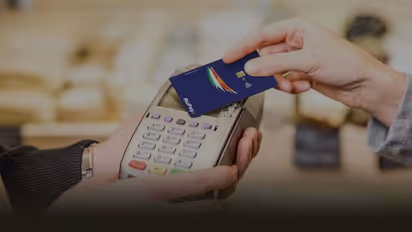Rupay Card enters Nepal: Why Kathmandu opted for India's payment network

Synopsis
Rupay cards are already operational in Singapore, Bhutan, Maldives, Myanmar, South Korea, Saudi Arabia and the UAE.
Expressing their desire to take forward the bilateral relations between the two countries to a new height, Prime Minister Narendra Modi and his Nepalese counterpart Sher Bahadur Deuba have launched the indigenously-developed Rupay Card in Nepal, becoming the ninth country to adopt the payment network.
Deuba is in the national capital New Delhi to hold bilateral talks with his Indian counterpart, wherein the two sides have vowed to further expand their bilateral relations amidst the strained ties over boundary issues that erupted about a year ago.
"The launch of the RuPay card in Nepal will add a new chapter to our financial connectivity," said PM Modi in a joint statement with his Nepalese counterpart.
Prior to Nepal, the Rupay Card was launched in Bhutan, Singapore, and the UAE among others.
RuPay is a global card payment network from India with wide acceptance at shops, ATMs, and digital. It was conceived and launched by the National Payment Corporation of India (NPCI) in 2012 for making cashless payments for purchases.
According to the Rupay website, it has a highly-secured network that protects against anti-phishing. It is India's answer to global payment networks.
Advantage Nepal
The implementation of this card in Nepal will enable visitors and tourists from India to access ATMs and Point of Sale (PoS) terminals across the Himalayan nation, which shares a special bonding with India.
Rupay Cards in foreign markets
Rupay cards are already operational in Singapore, Bhutan, Maldives, Myanmar, South Korea, Saudi Arabia and UAE.
India sees Australia, the Philippines and Russia as the future markets for its indigenous monetary network. Talks have been held with the officials from these three countries.
Issuing Banks
Currently, over 1100 banks, including public and private lenders have been issuing Rupay cards. There are 10 core promoter banks -- State Bank of India, Punjab National Bank, Canara Bank, Bank of Baroda, Bank of India, Union Bank of India, ICICI Bank, HDFC Bank, Citibank and HSBC while 56 banks are share-holders of NPCI.
President Late Pranab Mukherjee had inaugurated the Rupay Cards in 2014 and since then it has made a quantum leap in tapping the domestic market shares. It is also making its footprint in global markets.
In the last 7-8 years, it has left behind all major international payment networks like Visa and Mastercards in India, grabbing over 60 per cent of the domestic share.
Also Read: Visa knocks Katherine Tai's door as Modi government boosts RuPay
Stay updated with the Breaking News Today and Latest News from across India and around the world. Get real-time updates, in-depth analysis, and comprehensive coverage of India News, World News, Indian Defence News, Kerala News, and Karnataka News. From politics to current affairs, follow every major story as it unfolds. Get real-time updates from IMD on major cities weather forecasts, including Rain alerts, Cyclone warnings, and temperature trends. Download the Asianet News Official App from the Android Play Store and iPhone App Store for accurate and timely news updates anytime, anywhere.